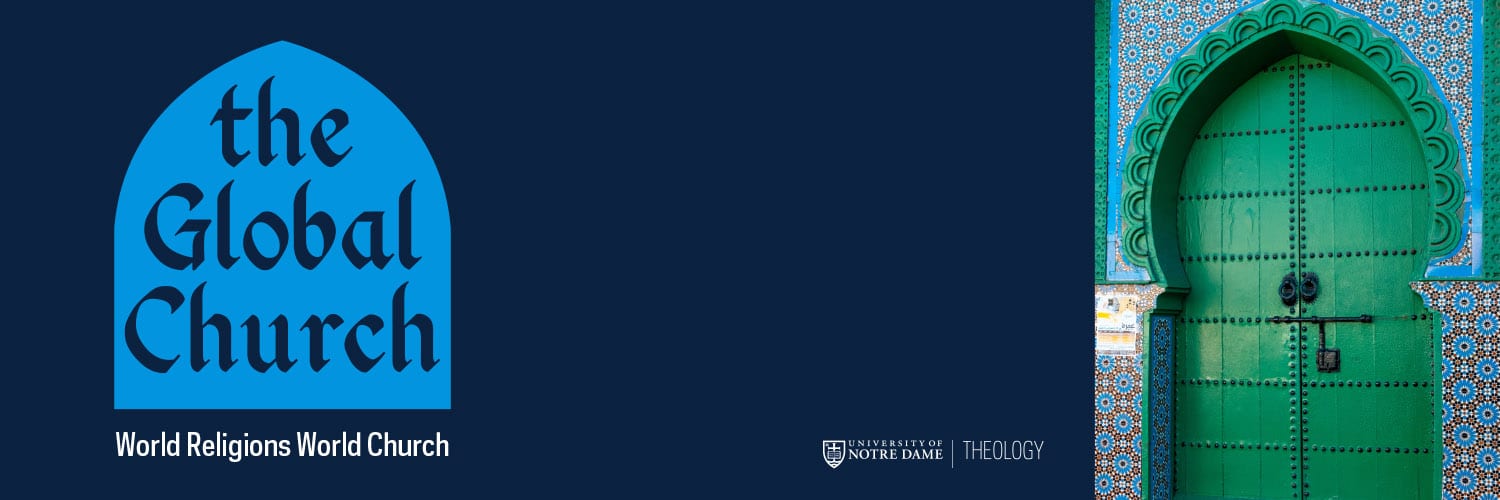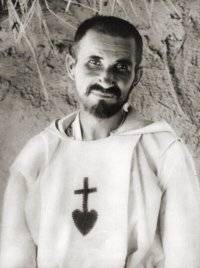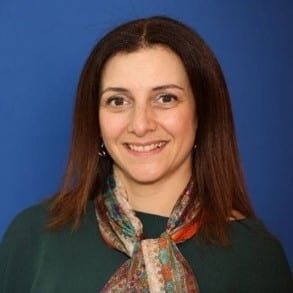The One God in Islam and Christianity

Christians and Muslims believe in a God who created the universe, who loves them, and guides them. Yet there are significant differences in their vision of God. Is it coherent, then, to say that they believe in the same God? What is distinct about each faith’s vision of God’s relationship to humanity? In week three of the “The Church and Islam” we explore these questions, and ask how the Church might carry out its mission to proclaim the Gospel while also embracing religious dialogue.
Introduction to Episode 3
Presented by Gabriel Reynolds
How the Church might fruitfully engage with Islam?
Listen in to a conversation with Dr. Nayla Tabbara, a distinguished scholar of Islam with a focus on the mystical tradition of Sufism. Together we will address the theme of the theological relationship between Christianity and Islam, and the question of whether Muslims and Christians worship the same God principally from a Christian perspective. I will ask Dr. Tabbara for her insights on this question from an Islamic perspective. Does the belief in a Trinity, or in the divinity of Christ, render it impossible for Muslims to consider Christians monotheists?
This episode we will also address the question of sin and salvation. At the heart of the Christian Gospel is the message that God, whose love for creation is overflowing, chose to be with humanity through the Incarnation, and to save us in the passion, death, and resurrection of Christ. Muslims generally reject the reality of Christ’s crucifixion, so how do they see the way in which God acts out his mercy and judgment?
Finally, we will think about what assessment the Church might make of the Qur’an and Muhammad, the central aspects of the Islamic faith. Muhammad comes after Jesus, and the Qur’an in places criticizes Christianity. How can the Church still find meaning in the Qur’an and still esteem Muhammad, whom the Qur’an describes as a “mercy for the worlds”? What assessment can the Church make of Muhammad’s ethical behavior?

Think about how the Church is called not only to be in dialogue with Muslims but also to proclaim the Gospel. Are dialogue and proclamation in conflict? How can Christians proclaim the truth of their faith while still respecting the faith of Muslims, and indeed learning from the faith of Muslims? We might find inspiration in the example of blessed Charles de Foucauld, who lived for decades among Muslims in the Algerian desert. He wrote:
“The one thing we owe absolutely to God is never to be afraid of anything.”
Experience the Episode
Presented by Gabriel Reynolds
Wednesday, April 30, 2025 12:00 pm
Subscribe to the ThinkND podcast on Apple, Spotify, or Google.
Featured Speakers:
- Nayla Tabbara, President of Adyan Foundation for Diversity, Solidarity and Human Dignity
- Gabriel Said Reynolds, Jerome J. Crowley and Rosaleen G. Crowley Professor of Islamic Studies and Theology, University of Notre Dame; Author of Qur’an and the Bible and Allah: God in the Qur’an
Is the God of Muhammad the God of the Church?
Presented by Gabriel Reynolds
In this video, we explore why some answer “no” to the question if Christians and Muslims worship the same God and ask why the Catholic Church answers “yes.”
Sin and Salvation in Islamand the Church
Presented by Gabriel Reynolds
Discover how Islam conceives of the human quest for salvation despite the Qur’an’s apparent denial of Christ’s crucifixion.
A Christian View of Islam
Presented by Gabriel Reynolds
The Catholic Church has largely been silent about the status of the Qur’an and Muhammad. In this video, discover why this question is complicated and explore how the Church can both proclaim the Gospel and enter into dialogue.
Meet the Speaker: Nayla Tabbara

Dr. Nayla Tabbara is the director of the Adyan Institute and the vice chair of Adyan Foundation and, previously served as director of its Cross-Cultural Studies Department.
She holds a doctorate in religious studies from the École Pratique des Hautes Études (Sorbonne, Paris) and Saint Joseph University (Beirut, Lebanon) and is a university professor of comparative religions and Islamic studies. She has published in the fields of Islamic theology and other religions, education on interreligious and intercultural diversity and Qur’anic exegesis and Sufism. In addition, she works on curricula development (formal and non-formal) for multifaith education and intercultural citizenship. Her publications include Divine Hospitality: Christian and Muslim Theologies of the Other (2011, co-author with Fadi Daou; in Arabic and French, 2012); What About the Other? A Question for Intercultural Education in the 21st Century (editor, 2012) and the UNESCO publication, Christianity & Islam in the Context of Contemporary Culture (2009, co-editor with Dimitri Spivak).
Dr. Tabbara has also participated in numerous research projects and organizations including the following: Research coordinator, L’Arche and Islam (Adyan & L’Arche Internationale); Member, International Federation of Catholic Universities research group on religions and cultures, focusing on the topic, “Conflicts Related to Religious and Cultural Diversity”; and Researcher, UNESCO Lebanese-Russian project on youth and intercultural and interreligious dialogue. Dr. Tabbara also gives frequent interviews for numerous international media outlets, both print and television. Some of her most recent include a September 2015 interview together with Fadi Daou for Greece’s Pemptousia and an interview for an October 2015 article by Catholic News Agency following her participation as a speaker at the Vatican’s conference on the 50th anniversary of Nostra Aetate.
Additional Resources
Presented by Gabriel Reynolds
- Commonweal Magazine article After Abu Dhabi: Pope Francis & the ‘Document on Human Fraternity by Gabriel Reynolds
- Minding Scripture podcast Episode 3: Jesus in the Qur’an
- Consider purchasing: Allah: God in the Qur’an by Gabriel Reynolds
- Watch Mustafa Akyol’s TED Talk Faith versus tradition in Islam
